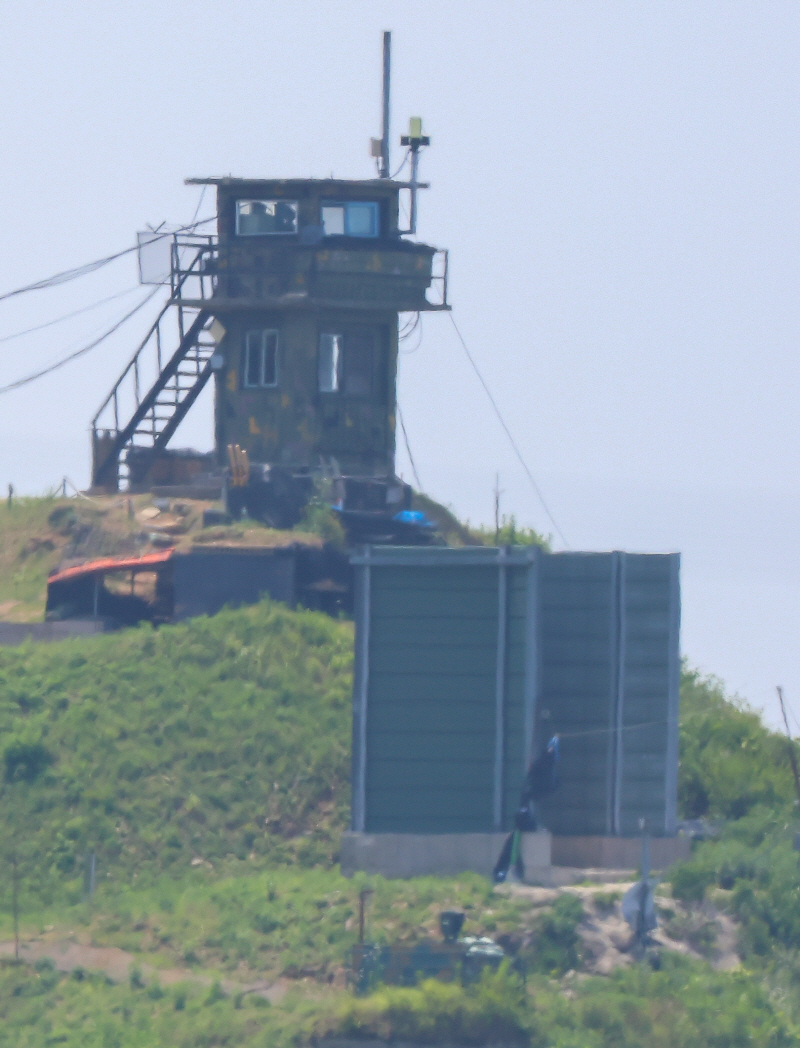The South Korean military has disseminated President Yoon Suk Yeol’s “8.15 Unification Doctrine” through loudspeaker broadcasts aimed at North Korea. In the absence of any response from the North Korean authorities regarding President Yoon’s proposal, the South Korean military has taken the initiative to directly convey the message to North Korean soldiers and citizens.
According to military sources on August 18, the “Voice of Freedom” broadcast, operated by the Korean Psychological Operations Group, relayed key points from President Yoon’s Liberation Day speech on August 15 via loudspeakers aimed at the North.
The military, which had previously resumed limited loudspeaker broadcasts in response to North Korea’s balloon launch on July 19, has been operating the broadcasts in full since July 21.

Leading the broadcast, the news stated, “President Yoon emphasized that true liberation will only be realized when a free and democratic unified state, where the people are sovereign, is established across the entire Korean Peninsula.” The broadcast also highlighted President Yoon’s proposal to establish a working-level dialogue body with North Korea.
The broadcast further conveyed President Yoon’s remarks: “As long as the division continues, our liberation remains incomplete. The freedom we enjoy must extend to the North, a land of suffering under tyranny, poverty, and hunger.”
Additionally, the broadcast mentioned the three key tasks, known as the “Three Unification Strategies”: first, South Korean citizens must firmly uphold the values and capabilities to pursue peaceful unification; second, there must be a shift to encourage North Korean citizens to earnestly desire unification; and third, there must be solidarity with the international community.
While the news was composed primarily of excerpts from President Yoon’s speech without any emotional embellishments, the fact that the military directly promoted unification concepts to North Korean soldiers and citizens is seen as significant.
Analysts within and outside the military suggest that this reflects the current administration’s determination to push for unification through the North Korean people’s desire for freedom, should the Kim Jong-un regime fail to respond.

A government official commented, “It’s crucial to ensure that North Korean citizens are better informed about the outside world and South Korea to realize their right to know. If we effectively showcase our strengths and appeal, it will further fuel their desire for unification.”
There is speculation that this “8.15 Unification Doctrine” could lead to more proactive and diverse information being introduced into North Korea.
Meanwhile, the “Voice of Freedom” broadcast also cited Radio Free Asia (RFA) in reporting that Kim Jong-un used South Korean expressions during a speech on August 10 at a flood-stricken area in Uiju County, North Pyongan Province.
The broadcast noted that Kim Jong-un’s use of terms such as “residents,” “elders,” “sickly,” “harsh terrain,” “denigrate,” and “TV” were all South Korean expressions. In North Korea, these words are typically rendered as “comrades or people,” “the elderly or old people,” “the weak,” “difficult and hard places,” “slander or belittle,” and “television,” respectively. The broadcast pointed out the irony that while North Korean residents are discouraged from using South Korean expressions, Kim Jong-un himself employed them in his speech.
BY KEUNPYUNG LEE, YOUNGNAM KIM [lee.keunpyung@joongang.co.kr]




